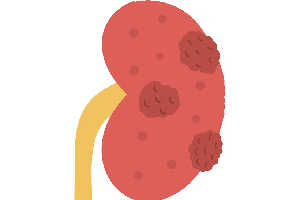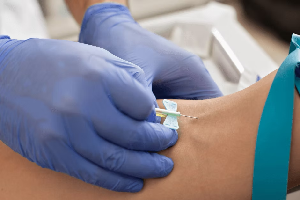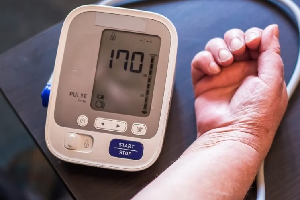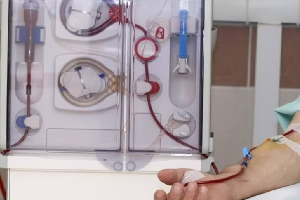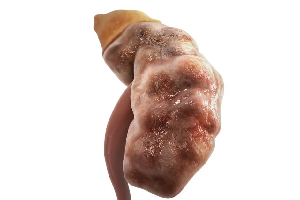Kidney Disease
At Preeti Kidney Hospitals, we are committed to providing expert care
and innovative treatment options for individuals with kidney disease.
Kidney disease, also known as renal disease, encompasses a range of
conditions that impair the kidneys' ability to function effectively. The
kidneys are vital organs that filter waste and excess fluids from the
blood to form urine. When the kidneys are damaged, they can no longer
perform this essential function properly, leading to a buildup of waste
products in the body.
Types & Stages
Kidney disease can be caused by a variety of factors, including:
- Diabetes:High blood sugar levels can damage the blood
vessels in the kidneys.
- High Blood Pressure: Hypertension can damage the
kidneys' blood vessels, reducing their ability to function.
- Genetic Factors: Inherited conditions like PKD.
- Autoimmune Diseases: Conditions like lupus that can
attack the kidneys.
- Infections and Toxins:Bacterial infections or exposure
to certain drugs and toxins.
Kidney disease is typically classified into five stages based on the
glomerular filtration rate (GFR), which measures kidney function:
- Stage 1: Urine may appear pink, red, or
cola-colored.
- Stage 2: Pain in the side or back that
does not go away.
- Stage 3: Losing weight without
trying.
- Stage 4: Persistent tiredness and low energy
levels.
- Stage 5: Intermittent fevers not caused by
infection.
Causes & Symptoms
Early stages of kidney disease may not present noticeable symptoms. As the
disease progresses, symptoms may include:
- Fatigue and Weakness: Due to a buildup of waste products in
the body.
- Swelling (Edema): Especially in the legs, ankles, feet, or
around the eyes.
- Changes in Urination:Such as increased frequency, foamy
urine, or blood in the urine.
- Shortness of Breath: Resulting from the accumulation of
waste products.
- Nausea and Vomiting: Leading to unintended weight loss.
- Loss of Appetite: Exposure to certain substances, such
as cadmium or specific herbicides, can raise the risk.
- Muscle Cramps: Often caused by electrolyte imbalances.
Kidney cancer often does not cause symptoms in its early stages. However, as the
disease progresses, symptoms may include:
- Blood in Urine:Urine may appear pink, red, or cola-colored.
- Persistent Pain: Pain in the side or back that does not go
away.
- Unexplained Weight Loss: Losing weight without trying.
- Fatigue Persistent tiredness and low energy levels.
- Fever: Intermittent fevers that are not due to an
infection.
- A Lump: A lump or mass in the side or abdomen.
Diagnosing Kidney Stones
To diagnose kidney disease, your doctor may recommend:
- Blood Tests:To measure levels of waste products
like creatinine and urea.
- Urine Tests:To detect abnormalities such as protein
or blood in the urine.
- Imaging Tests:Such as ultrasound, CT scans, or MRI
to visualize the kidneys.
- Kidney Biopsy:Removing a small sample of kidney
tissue for examination.
Treatment Options
To diagnose kidney disease, your doctor may recommend:
Lifestyle Changes
- Dietary Modifications:Reducing sodium, protein, and
phosphorus intake.
- Exercise:Regular physical activity to maintain
overall health.
- IQuit Smoking: To improve kidney function and
overall health.
Medications
- Blood Pressure Medications:To control hypertension
and slow disease progression.
- Diuretics:To help reduce swelling.
- Medications to Control Blood Sugar: For individuals
with diabetes.
Dialysis
Dialysis is a procedure to remove waste products and excess fluid from
the blood when the kidneys stop working properly. It often involves
diverting blood to a machine to be cleaned.
Preventing Kidney Cancer
While it’s not always possible to prevent kidney cancer, certain
lifestyle changes can reduce your risk:
- Quit Smoking: Stopping smoking can significantly
reduce your risk.
- Maintain a Healthy Weight: Healthy diet and regular
exercise can help maintain a healthy weight.
- Control Blood Pressure: Regular check-ups and
proper management of blood pressure.
- Avoid Exposure to Harmful Substances:Minimizing
exposure to toxic chemicals in the workplace.
